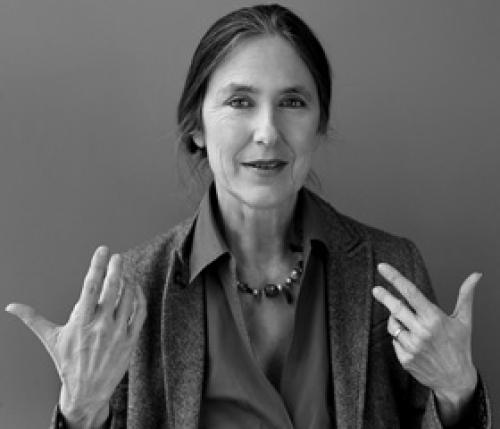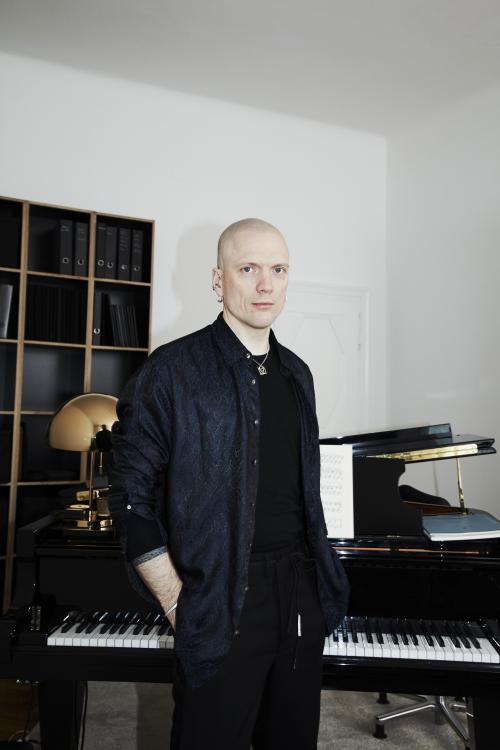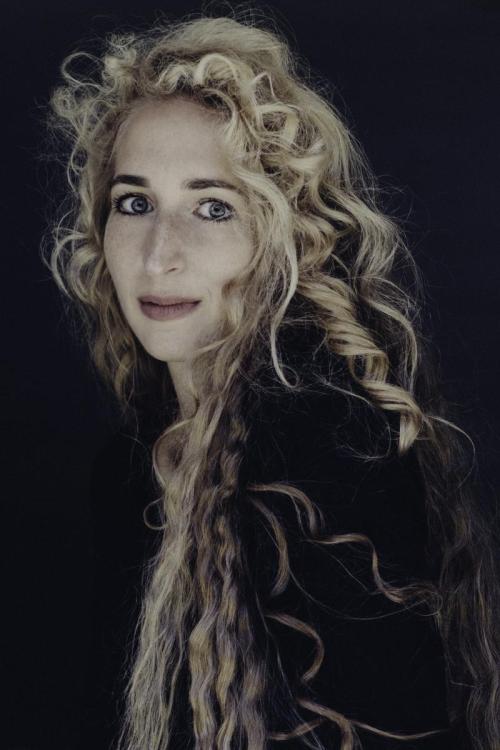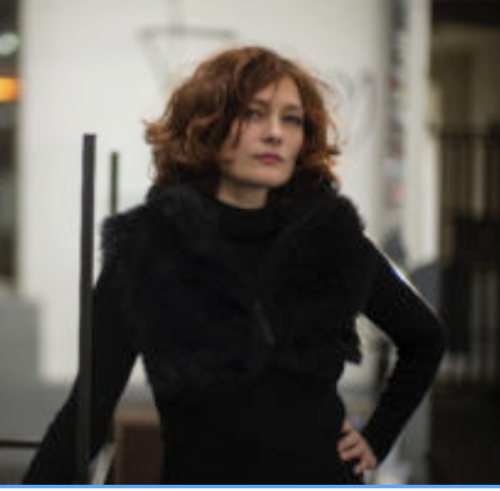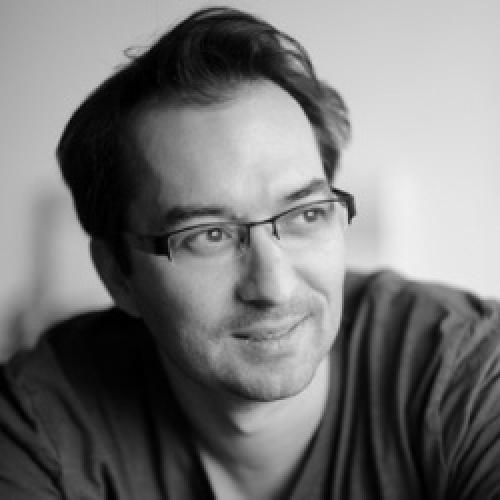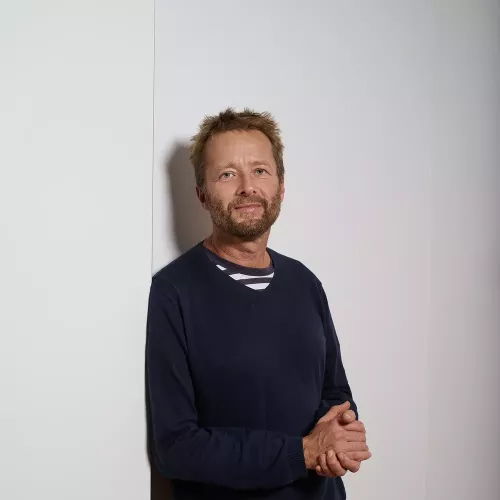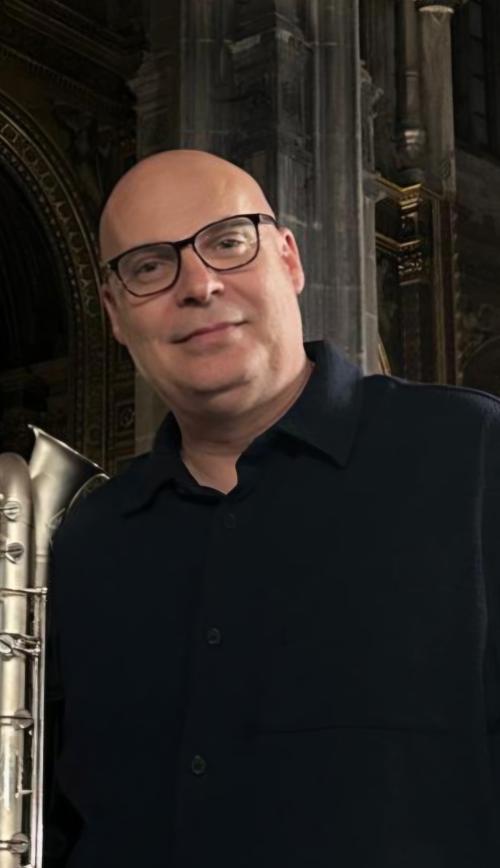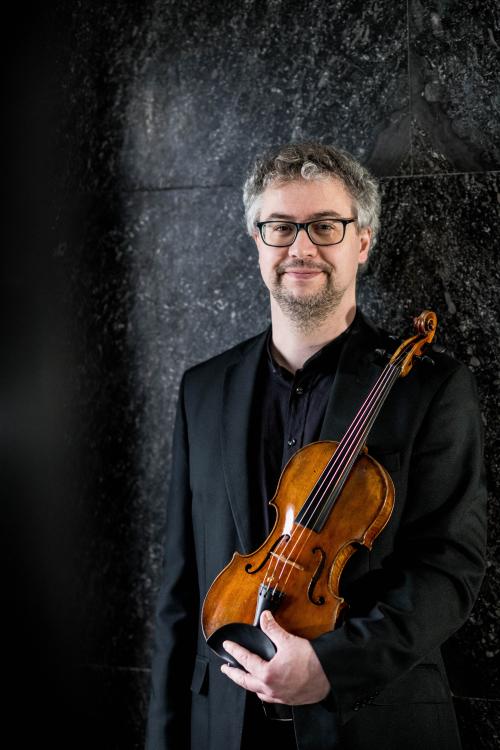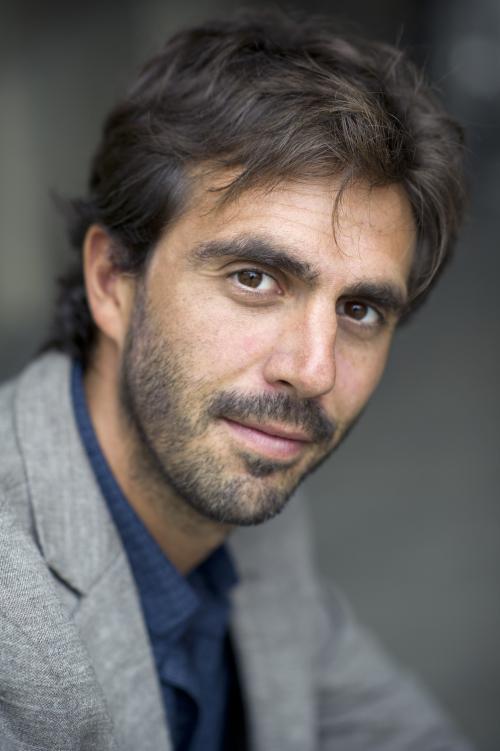Tutors
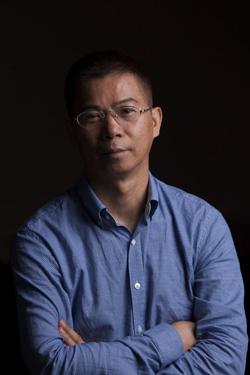
WEN DEQING, guest composer
Deqing Wen was born in southern China. After graduating with a degree in music from Fujian Normal University, he served as the official composer for the Ningxia Ensemble from 1984 to 1988. He then studied with Jean Balissat at the Geneva Conservatoire (Composition Prize 1993) and Gilbert Amy at the Lyon Conservatoire. Several portrait concerts have been dedicated to him in Europe, the United States and China. His first opera, Le Pari, was successfully premiered at the Amadeus Festival in Geneva in 2003. The winner of numerous awards, Deqing Wen has received a grant from the Leenaards Foundation. Several festivals and foundations, such as Pro Helvetia, Festival Archipel, Association des Amis de la Musique, Festival de Witten and Radio Suisse Romande-Espace 2, have commissioned works from him. An independent composer, Deqing Wen has lived in Geneva since 1991. He is currently a Visiting Scholar at Columbia University in New York. Deqing Wen's music has typically Chinese characteristics, but treated in a personal way and with complex Western technique. Deeply inspired and influenced by Chinese culture, particularly philosophy, painting and calligraphy, he tries to find a new system for each piece that is suited to what he wants to express. His approach also sometimes leads him to use everyday objects in his compositions (tin cans, bottles, glasses, wind machines, tap water, paper, etc.).
ELISABETH GUTJAHR, lecturer
Elisabeth Gutjahr spent her childhood in Bonn and Geneva, two cosmopolitan cities that influenced her development. After completing her studies in rhythm and music theory in Stuttgart and Cologne, at the age of 26 she was appointed as professor at the Trossingen State Academy of Music in Baden-Württemberg. She was constantly concerned with the further development of the institution, in the senate, the university council, and from 2006 also as Rektorin, a function to which she was re-elected in 2012. Moreover she has commitments in the conferences of university chancellors, in the regional music council (governing board), in the educational committee of the German Music Council (deputy chairperson), in the advisory committee on quality at the University of Gutenberg in Mainz, and since 2015 in the Council of the AEC. She also holds further honorary positions on several boards and advisory committees, for example the Music Friends of Donaueschingen, the Zimmertheater Rottweil 2002 and the regio tv Ravensburg.
She is particularly preoccupied with the opposing poles of score and performance, libretto and stage, whereby she is interested in interdisciplinary processes that link music, theatre, dance, language, film and the fine arts with each other. From an early age she focused her artistic activity on the creation of text in context with music. Elisabeth Gutjahr has also organized competitions and festivals of contemporary music and has worked as a music dramaturge, choreographer and stage director.
Since 1989 she has written several opera libretti and texts for music. She wrote Gesualdo for the composer Franz Hummel (for the opening of the new opera house in Kaiserslautern), the text for the chamber opera On the Beautiful Blue Danube (voted Best Opera of the Year 1994 by the journal Opernwelt), Beuys (co-production between the Vienna Festival and the Deutsche Oper am Rhein Dusseldorf) and Styx (libretto about Handel and the Orpheus myth for the Handel Festival 1999/2000).
For the composer Tobias P. M. Schneid she wrote Swin swin, a chamber opera that was also produced for television and broadcast in 1998 on ARTE. She wrote the libretto for the opera Eclipse by József Sári (premiered in 2009 at Budapest Opera). In 2015, together with Henry Fourès, she produced the bilingual music radio play Correspondances in the studio La mise en circuit in Paris for the Musica Viva Festival in Strasbourg.
Elisabeth Gutjahr has written several artistic and music-educational articles such as Der Mythos Kreativität (Verlag Wissenschaft und Bildung, Berlin, 1996) as well as essays on music and concert educational theory, music education, improvisation and creative processes. She has written several radio plays and also the cycle of poems Tractatus logico-poeticus, to which the award-winning audio book Wittgenstein with Klaus Löwitsch refers (commission and cooperation).
Composition program
LAURE M. HIENDL, composer
Laure M. Hiendl is a composer based in Vienna who engages with the structural and medial dynamics of circulation-forward capitalism—digitality, acceleration, and demediatization—and their aesthetic effects on contemporary art music. Hiendl’s work often explores sampling, particularly of scores, to construct new intertextual constellations from vast digital music archives. The concept of the “animated still life” (Lauren Berlant) is central to their aesthetic, reflecting the immediacy and frenzied stasis of today’s media landscape.
Hiendl’s compositions have been presented at numerous festivals, including MaerzMusik, ECLAT, Ultraschall, Donaueschinger Musiktage, Warsaw Autumn, and Sonic Matter Zurich. Their music has been performed by ensembles and orchestras such as the SWR Symphony Orchestra, WDR Symphony Orchestra, JACK Quartet, International Contemporary Ensemble, Ensemble Mosaik, Ensemble Garage, NeoQuartet, Yarn/Wire, Ekmeles, Ensemble NAMES, and Ensemble KNM Berlin, with whom Hiendl shares a long-standing collaboration. Their collaborative practice includes exchanges with artists across generations and disciplines, such as singer Elaine Mitchener and choreographer July Weber. Hiendl has received numerous distinctions, including the Rome Prize of the German Academy Villa Massimo, the Stuttgart Composition Prize, and several commissions from the Ernst von Siemens Music Foundation.
In 2022, Hiendl co-founded the festival Musikinstallationen Nürnberg with Bastian Zimmermann, a project supported by the German Federal Cultural Foundation that presents music as performative spatial art. Hiendl studied with Beat Furrer and Roger Reynolds and completed a doctorate at Columbia University with George Lewis on the topic of “Queer Composition.” They habilitated at the University Mozarteum Salzburg with a thesis on “Composition and Digitality,” where they now serve as Professor and Head of the Department of Composition and Music Theory.
SARAH NEMTSOV, composer
Sarah Nemtsov was born in 1980 in Oldenburg and studied composition in Hanover and Berlin with Nigel Osborne, Johannes Schöllhorn and Walter Zimmermann, as well as oboe with Klaus Becker and Burkhard Glaetzner.
She has received numerous awards and scholarships, including the Busoni Composition Prize of the Berlin Academy of the Arts, the Deutsche Musikautorenpreis of the GEMA, and won the international RicordiLAB composition competition.
She collaborates with renowned ensembles and orchestras (HR Symphony Orchestra, Deutsches Sinfonieorchester, RSO Vienna, WDR Orchestra, Ensemble Musikfabrik, Klangforum Wien, ensemble modern, ensemble mosaik, Ensemble Adapter, Nikel ensemble, Decoder ensemble, Neue Vocalsolisten Stuttgart, ensemble recherche, Basel Sinfonietta, Finnish Baroque Orchestra, etc.), and her works are performed at internationally renowned festivals – such as the Donaueschinger Musiktage, Darmstadt Summer Course, Wien Modern, ECLAT, Ultraschall, Holland Festival, Musica, Bregenz Festival, Munich Biennale, Ruhrtriennale, and many more.
Nemtsov's music captivates through sensitively sounded setups, complex and energetic textures, musical stratifications, interactions between acoustic instruments and electronics, as well as collaboration with and references to other arts and other media.
In 2014, Sarah Nemtsov taught composition at Hochschule für Musik und Tanz Cologne. In 2018, she taught composition at Haifa University as a DAAD guest lecturer. In 2021, she was tutor for composition at Darmstadt Summer Course.
In 2020, she was nominated for the Opus Klassik Prize in the category "Composer of the Year". In 2021, she was elected as a member of the Akademie der Künste (The Academy of Arts) Berlin as well as the Saxon Academy of the Arts.
Since 2022, she is professor for composition at the University Mozarteum Salzburg, Austria. Her catalogue includes more than 150 compositions in almost all genres. Since 2016, her works are published by Ricordi.
DIE ZEIT wrote about her opera SACRIFICE (premiered 2017 at the Opera House Halle): "Sound becomes space becomes time becomes reality." Her highly acclaimed opera – composed in 2016 and premiered in March 2017 at Opera Halle – was described by Die ZEIT as a work in which "sound becomes space becomes time becomes reality."
In 2022, at the festival Ruhrtriennale, her cycle HAUS was staged at the Turbine Hall Bochum – “an unleashed ecstasy of sound that opens up spaces of association” (nmz).
Her newest opera – OPHELIA (2020–2021), with a libretto by Mirko Bonné – will be premiered in 2023 at Saarländisches Staatstheater.
Currently, Sarah Nemtsov works on her tetralogy TZIMTZUM for four soloists and orchestra, as well as on another opera: WE (after E. Zamyatin), for Opera Dortmund, with a premiere in 2024.
EVA REITER, composer
Eva Reiter, born in Vienna, studied recorder and viola da gamba at the University of Music and Performing Arts in Vienna and continued both studies at the Sweelinck Conservatory in Amsterdam. In 2006 she completed both master's degrees cum laude with a focus on contemporary composition.
Eva Reiter works as a musician, composer, performer, lecturer and artistic curator. She teaches at academies for early music and for composition (ARCO – Art Research and Creation, Marseille; Voix Nouvelles Academy, Royaumont; Bludenzer Tage zeitgemäßer Musik, among others).
Since 2020 she has been teaching composition at the Musik und Kunst Privatuniversität der Stadt Wien. In 2021, she was awarded a grant from the City of Vienna for the artistic research project Transforming Instrumental Gestures. For the year 2024 she was invited as guest curator for the Klangspuren Festival.
Eva Reiter performs as a soloist and with various orchestras and ensembles for early and contemporary music (including Ictus, Klangforum Wien). Since 2015 she has been a member of the Belgian ensemble Ictus, whose artistic planning she helps to oversee.
Her work as a composer has received several awards. She has performed her compositions at international festivals such as Transit, Ars Musica, ISCM World New Music Festival, generator, Wien Modern, Klangspuren, Aspekte Salzburg, Sommer in Stuttgart, MaerzMusik, musikprotokoll im steirischen herbst, Darmstädter Ferienkurse, Donaueschinger Musiktage, Festival Archipel, Huddersfield Contemporary Music Festival, Musica Strasbourg, Kunstenfestivaldesarts, Wiener Festwochen and others.
In the 2019/20 season, Eva Reiter was resident artist at the Elbphilharmonie Hamburg and the Wiener Konzerthaus.
YANN ROBIN, composer
In parallel to pursuing jazz studies at the CNR in Marseille, Yann Robin studied composition with Georges Bœuf then joined the class of Frédéric Durieux at the Conservatory of Paris (CNSMDP), studying analysis with Michaël Levinas before taking the Cursus Computer Science course at IRCAM. During these formative years his meeting with Jonathan Harvey would mark him deeply.
His music, powerful and voluminous, where pulsation and rhythm encounter moments of ecstasy, is released with great bouts of energy. By way of contrast, the timbre navigates between purity and impurity. The lure of low abyssal frequencies which he refers as «a world from below» brings him to Inferno, for large orchestra and electronics, and to the exploration of the infrasounds he uses here as an «underground dramaturgy». Since Monumenta, a piece for large orchestra with 95 musicians, he has been developing the concept of «negative harmony», allowing him to conduct mass and texture of great density with high precision and for the whole duration.
In 2009 and 2010, he was a fellow at the French Academy in Rome, the Villa Médicis, where he launched a new contemporary music festival, the Controtempo Festival.
He works in close collaboration with many soloists including Alain Billard, Nicolas Crosse, Éric-Maria Couturier and the Tana Quartet and also with conductors like Susanna Mälkki, Allan Gilbert, Jonathan Nott, Ludovic Morlot, Peter Rundel, and Leo Warynski…
In 2005, he co-founded the Multilateral Ensemble of which he is the artistic director.
His music is published by Editions Jobert.
JOHANNES MARIA STAUD, composer
Born in Innsbruck in 1974, the composer Johannes Maria Staud draws much of his inspiration from literature and the visual arts. Reflections on philosophical questions, social processes, and political events also influence his compositions.
He studied musicology and philosophy in Vienna before continuing his compositional studies with Hanspeter Kyburz in Berlin. In 2002 he won the Erste Bank Composition Prize; in 2003 he received the International Rostrum of Composers prize, followed by the Ernst von Siemens Composers’ Prize in 2004 and the Schleswig-Holstein Musik Festival’s Paul-Hindemith-Prize in 2009. Prestigious commissions followed. In 2004/05 Apeiron was commissioned by the Berlin Philharmonic under Sir Simon Rattle. In 2006 Segue for violoncello and orchestra was commissioned by Heinrich Schiff and the Vienna Philharmonic under Daniel Barenboim for the Salzburg Festival.
Major ensemble works of recent years include Auf die Stimme der weißen Kreide (Specter I-III), which premiered at the Festival Musica in Strasbourg in 2015, and the diptych Par ici –Par là, performed for the first time in full by the Ensemble Intercontemporain at the Acht Brücken festival in Cologne. The violin concerto Oskar (Towards a Brighter Hue II), written for Midori, premiered in 2014 at the Lucerne Festival, as did the opera Die Antilope based on a libretto by Durs Grünbein. Grünbein also provided the textual template for Der Riss durch den Tag (2011) and for the opera Die Weiden, which premiered in 2018 at the Vienna Staatsoper.
The composer’s most recent orchestral work, Stromab (“Downstream”), was premiered in 2017 by the Royal Danish Orchestra with its new chief conductor Alexander Vedernikov, with subsequent engagements in Vienna, Cleveland and New York. In 2018 the Vienna Philharmonic premiered Scattered Light without a conductor as part of the Vienna Modern’s season opening concert, followed by a guest performance in Berlin.
The 2019/20 season kicks off with the world premiere of Terra pinguis, a work for the Munich Chamber Orchestra. The current season also features new works for the Boulanger Trio (Kasseler Musiktage), a trio for the multi-percussionist Martin Grubinger (Vienna and Cologne), and a miniature for Rudolf Buchbinder on the Diabelli Variations.
Johannes Maria Staud is Professor of Composition at the Mozarteum University in Salzburg since autumn 2018.
Vocal program
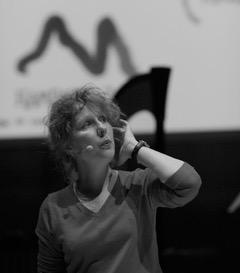
VALÉRIE PHILIPPIN, singer
Valérie Philippin is a French vocalist, performer, and composer whose work explores the voice in all its dimensions — sung, spoken, extended techniques, improvisation — and its intimate connection with the body, space, and text. She is recognized for her singular approach to vocal performance, at the crossroads of contemporary music, experimental practices, and theatricality.
She collaborates with numerous composers and ensembles, premiering many works and creating original solo performances that blend music, poetry, and sound exploration. Her artistic projects often reflect a desire to question and expand the role of the voice in today’s music, while opening new paths for interpretation and creation.
A passionate and generous educator, Valérie Philippin teaches at the Bordeaux Conservatoire and regularly leads masterclasses and workshops throughout Europe, aimed at singers, composers, and performers from diverse backgrounds. Her teaching emphasizes the creative process, body awareness, improvisation, and the search for personal vocal expression.
Also active as a composer and author of vocal works, she develops projects that link sound, text, and gesture, in close dialogue with contemporary poetic and musical languages. Her artistic journey is driven by curiosity, experimentation, and the transmission of an open, inventive, and liberated vision of the voice.
Instrumentalist and string quartet programs
ALAIN BILLARD, clarinetist
Born in 1971, Alain Billard began playing the clarinet at the age of five with Nino Chiarelli at the Chartres music school. He went on to study with Richard Vieille at the Conservatoire National de Région de Paris (CNR) and then at the Conservatoire National Supérieur de Musique de Lyon, graduating with a Diplôme d'Etudes Supérieures in Jacques Di Donato's class.
An internationally acclaimed soloist, he has collaborated with many composers from the 20th century to the present day, including Pierre Boulez, Luciano Berio, György Ligeti, Karlheinz Stockhausen, Philippe Manoury, Michael Jarrell, Pascal Dusapin, Bruno Mantovani and Yann Robin.
A regular guest soloist with major national and international orchestras, he has premiered and recorded numerous works, including Machine for Contacting the Dead (2001) by Lisa Lim, Génération (2002), a triple concerto for three clarinets by Jean-Louis Agobet, Mit Ausdruck (2003), a concerto for bass clarinet and orchestra by Bruno Mantovani, Art of Metal I, II, III (2007-2008) for contrabass clarinet, ensemble and electronics by Yann Robin, and more.
Alain Billard is very active in the field of research and development of new instrumental techniques. He collaborates regularly with Ircam and Selmer.
His work as a clarinet and bass clarinet teacher at the ESMD in Lille and the CNSMDP in Paris, and as a lecturer at numerous composition academies for future music professionals, testify to his deep commitment to the transmission of musical knowledge in all its forms.
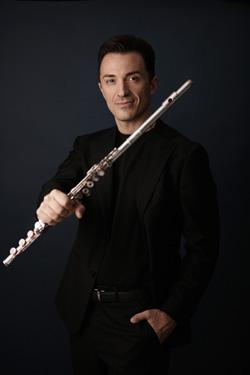
MATTEO CESARI, flutist
PIETER JANSEN, violinist
Pieter Jansen began violin classes at the age of 7 with Koen Rens at the Academy of Music of Turnhout. He continued his studies at the Royal Conservatory of Antwerp under Guido De Neve. He was conferred with a Master’s degree summa cum laude. In January 2006, he was awarded the ‘Oranjebeurs’ scholarship.
He continued his studies with violinists such as Charles-André Linale, Raphael Oleg, Albrecht Breuninger and Renaud Capuçon.
As an orchestra musician, Pieter is concertmaster of Boho Strings and as a solo violin/leader Pieter is also sought after by the Symphonic Orchestra of La Monnaie Théâtre, Belgian National Orchestra and Le Concert Olympique.
Pieter specialised in chamber music with the Artemis Quartet at the Queen Elisabeth Music Chapel and has participated in masterclasses with the Artis Quartet, the Skampa Quartet, Heine Müller, Ralf Gothoni and Andras Keller.
He’s a laureate of several chamber music competitions including Gouden Vleugels (2009) and Supernova (2014). He was a member of ARSIS4 and Tana Quartet and now plays with Trio Khaldei and I Justiniani.
Pieter has a great passion for contemporary music. He has been violin solo of SPECTRA, since 2006 and of Ensemble Multilatérale since 2016. He is also regularly invited by Hermes, Ictus and Notabu.
In may 2023, he was appointed co-artistic director of SPECTRA.
Pieter crossed Europe, Asia, North - and South-America and Australia for concerts at festivals and halls such as: Musica Strasbourg, World Music Days in Sydney, the Traiettorie Festival in Parma, the festivals of Aix-en Provence and Avignon, Wigmore Hall in London, the Louvre Auditorium in Paris, the Venice Biennial, the Donostia Festival in San Sebastian, the Ravello Festival in Naples, Teatro Colon in Buenos Aires,...
Pieter is chamber music professor and coördinator at KASK & CONSERVATORIUM of the School of Arts Ghent.
PABLO TOGNAN, cellist
Born into a family of musicians with a wide range of influences, Pablo's musical path reflects this diversity, leading him to take an interest in contrasting musical forms.
A graduate of the CNSMDP in cello (2008) and string quartet (2010), Pablo studied with Jean-Marie Gamard. He had previously won a prize at the CRR in Toulouse in Annie Cochet's class (2001), then at the ENM in Aulnay-sous-bois under Philippe Mûller (2003).
Her desire to broaden her musical horizons as much as possible has led her to perform with string quartets (Quatuor Tercea from 2010 to 2017) in order to explore the major repertoire, as well as with symphony orchestras (Orchestre National de Lille, Bordeaux, Toulouse, Lamoureux, etc.).
As a member of the Frivolités Parisiennes company, he helps to rediscover the vast repertoire of French Operetta. For two years (2008-2010), he was principal cellist with the Conservatoire's Orchestre des Lauréats. He performs regularly at the Marciac Festival, alongside musicians such as Richard Galliano, Baptiste Trotignon and Stacey
Stacey Kent.
His love of harmony, which he developed in particular with Bernard de Crépy at the Paris Conservatoire, enables him to write arrangements in both the classical and jazz worlds, with a particular interest in Brazilian music.
His work as a performer explores the cello’s extended techniques, the relationship between acoustic and electronic sound, and the physical dimension of musical gesture. Pablo Tognan is particularly interested in projects combining improvisation, collective creation, and new performance formats.
A dedicated pedagogue, he leads workshops and masterclasses focusing on contemporary cello practice, ensemble playing, and improvisation. His artistic vision is grounded in curiosity, freedom of expression, and the desire to explore new relationships between sound, body, and space.
